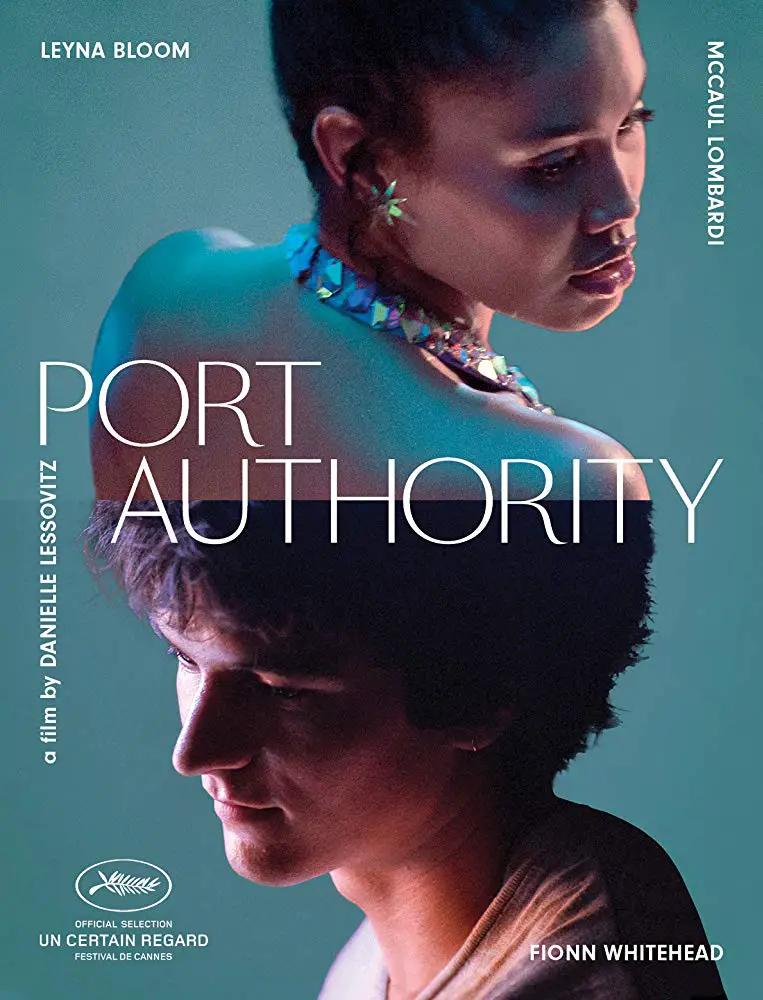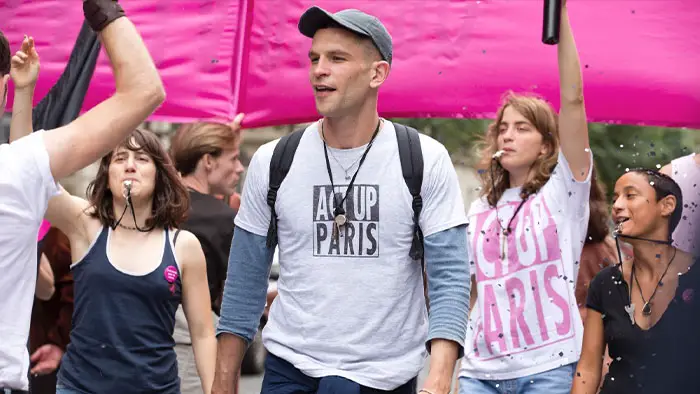
Talking about authenticity, or “realness,” Port Authority is not only a personal and passionate debut but a true communal work. Members of the queer and trans community were an integral part of the filming process from development to most of the actors featured in the film as Wye’s family (even though they belonged to different houses in real life) or in ballroom scenes, to wardrobe.
It should be noted, like most performers in the film, Bloom was not a professional actor, so it is a remarkable screen debut.
Although the film is from the point of view of “the other”, or everything is viewed through an outsider’s eyes to this subculture, having Layna and her peers playing important roles in front and behind the camera was also important in ensuring that the community was not fetishized (as it is often the case, and because it is easy on the eye to just film the flamboyant and more eccentric aspects.) Albeit, like in many cinematic romances with a male protagonist and viewpoint, Wye is captured as the “object of desire”, and it feels like she is sometimes portrayed as a “very grounded pixie dream girl” which is actually an interesting take – or maybe it is just some “black/brown girl magic” and “dazzling queerness”!
“…filmmakers’ intentions feel truly genuine and it doesn’t feel ‘for show.'”
The filmmakers opted to film everything with handheld cameras and no special effects of any kind in order to avoid any ill-advised objectification of trans body (or any bodies!) and the community. It might make for a too-tight viewing for some, but it primarily helps audiences to see through Paul’s eyes and discover things actively, not as mere observers. Surely, the film could have benefited from some wider shots, and a bit more of “contemplative social realism” – especially during the club scenes for viewers craving to see more of the ballroom or Wye’s lifestyle, but it would be another story as this is Paul’s love story.
Nevertheless, the otherness aspect of a film, so focused on “realness,” could be problematic to some who might think it does a disservice to the trans community. But one can tell that Port Authority filmmakers’ intentions feel truly genuine and it doesn’t feel “for show.”
It is a film that seems to be giving equal time to both sides, and juxtaposes the openness of the “ostracized community” (despite few reluctant members who, at first, are wary of Paul , and rightfully so, knowing their community is sadly an easy prejudiced against target), as opposed to the judgmental, aggressiveness and reticence to change or self-change of other sides. We see Wye accepting Paul whichever way he is, whether living in the street or with wealthy relatives, and with all his weakness and sins no matter how bad. But Paul is not ready to even accept himself or move from his past.
Port Authority has few dramatic moments, but it is the kind of film that wants to present things just like life, not all black or white, nor terribly happy nor sad. It is just a story with some joyful moments and some depressing ones all the way to a great bittersweet, and somehow happy-ish, ending. But the true beauty of the film is that, despite a grim and gritty story, brutal and tense scenes, it doesn’t fall into miserabilism as other movies easily would. It stays grounded and balanced by adding some truly memorable moments of levity.
Port Authority screened at 2019 Vancouver International Film Festival.

"…a love story sets in New York between two people from opposite worlds."


